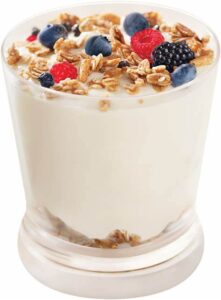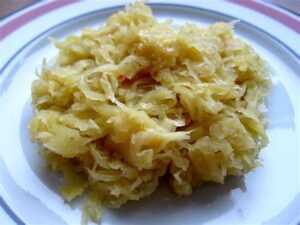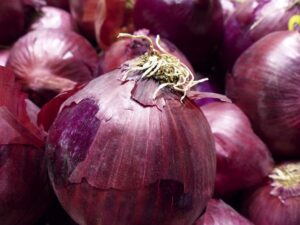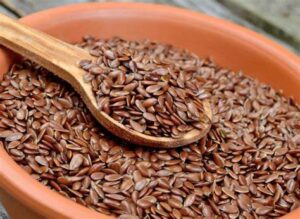A healthy gut is the foundation of overall well-being. It affects digestion, immunity, mood, and even skin health. The gut microbiome, which consists of trillions of bacteria, fungi, and other microorganisms, plays a crucial role in breaking down food, absorbing nutrients, and protecting against harmful pathogens. Eating the right foods can nourish these beneficial bacteria, improve digestion, reduce inflammation, and enhance overall health.
Here are 15 of the best foods that love your gut and help keep it in top shape. Each of these foods provides unique benefits, from probiotics that replenish good bacteria to prebiotics that feed them, along with fiber, antioxidants, and anti-inflammatory compounds that support digestive health.
1. Yogurt – A Probiotic Powerhouse

Yogurt is one of the best probiotic foods available, packed with live bacteria such as Lactobacillus and Bifidobacterium. These friendly microbes help balance your gut flora, improve digestion, and strengthen immunity. The fermentation process that turns milk into yogurt also breaks down lactose, making it easier to digest for those with mild lactose intolerance.
For the best gut health benefits, choose plain, unsweetened yogurt. Flavored yogurts often contain added sugars, which can feed harmful bacteria and counteract the benefits of probiotics. Greek yogurt is an excellent option because it is higher in protein and lower in sugar. You can enhance its flavor naturally by adding fresh fruit, nuts, or a drizzle of honey.
2. Kefir – A Supercharged Probiotic Drink
Kefir is a fermented milk drink similar to yogurt but with a thinner consistency and a tangier taste. It contains an even more diverse range of probiotics than yogurt, including beneficial yeasts that further support gut health. Kefir also contains enzymes that help break down lactose, making it a great option for people with lactose intolerance.
In addition to probiotics, kefir is rich in calcium, protein, and B vitamins. Drinking kefir regularly can help improve digestion, reduce bloating, and enhance nutrient absorption. For a dairy-free alternative, coconut or water kefir is also available.
3. Sauerkraut – Fermented Goodness

Sauerkraut is made from finely shredded cabbage that has been fermented by lactic acid bacteria. This traditional food is rich in probiotics, fiber, and vitamins C and K. The fermentation process not only preserves the cabbage but also enhances its nutritional value by increasing the number of beneficial bacteria.
To get the most probiotic benefits, choose raw, unpasteurized sauerkraut, as pasteurization kills the live bacteria. Adding a small serving of sauerkraut to meals can aid digestion, reduce bloating, and support a healthy immune system.
4. Kimchi – A Spicy Gut-Healing Food
Kimchi is a spicy Korean dish made from fermented vegetables, primarily napa cabbage and radishes, seasoned with chili peppers, garlic, ginger, and other spices. Like sauerkraut, kimchi is rich in probiotics, fiber, and antioxidants.
The fermentation process enhances its nutritional profile, making it a powerful food for gut health. Studies suggest that kimchi may help reduce inflammation, support immune function, and even aid in weight management. Enjoy kimchi as a side dish, in stir-fries, or even on top of rice bowls.
5. Miso – A Flavorful Fermented Paste

Miso is a traditional Japanese seasoning made from fermented soybeans, barley, or rice. It is rich in probiotics, enzymes, and essential nutrients like vitamin K, manganese, and copper. Miso soup is a popular way to consume this gut-friendly food, but it can also be used in dressings, marinades, and sauces.
The fermentation process breaks down the proteins and carbohydrates in soybeans, making miso easier to digest than unfermented soy products. Regular consumption of miso may help improve digestion, boost immunity, and even reduce the risk of certain chronic diseases.
6. Tempeh – A Nutritious Fermented Soy Product
Tempeh is a fermented soybean product that originated in Indonesia. Unlike tofu, which is made from coagulated soy milk, tempeh is made by fermenting whole soybeans, resulting in a firm, nutty-flavored product.
Tempeh is rich in probiotics, prebiotics, and plant-based protein. The fermentation process increases its digestibility and enhances nutrient absorption. Tempeh can be grilled, stir-fried, or crumbled into dishes as a meat substitute, making it a versatile addition to a gut-friendly diet.
7. Bananas – A Digestive-Friendly Fruit

Bananas are an excellent source of dietary fiber, particularly inulin, a type of prebiotic that feeds beneficial gut bacteria. They also contain potassium, which helps regulate fluid balance and prevent bloating.
Ripe bananas are easier to digest and can help soothe an upset stomach, while slightly green bananas contain resistant starch, which acts as a prebiotic. Eating a banana daily can support a healthy gut microbiome and promote regular bowel movements.
8. Garlic – A Natural Prebiotic
Garlic is not only a flavorful addition to meals but also a powerful prebiotic. It contains fructooligosaccharides (FOS), which promote the growth of beneficial gut bacteria like Bifidobacteria.
Garlic also has antimicrobial properties that help fight harmful bacteria while supporting the good ones. To maximize its benefits, consume garlic raw or lightly cooked. Adding crushed garlic to salads, dressings, or cooked dishes can enhance both flavor and gut health.
9. Onions – A Gut-Boosting Vegetable

Onions are another excellent prebiotic food, rich in inulin and FOS. These compounds help nourish gut bacteria, improve digestion, and enhance immune function.
Both raw and cooked onions provide prebiotic benefits, though raw onions may have a stronger effect. Including onions in soups, salads, stir-fries, or even as a topping for sandwiches can contribute to a healthier gut.
10. Asparagus – A Fiber-Rich Prebiotic
Asparagus is packed with inulin, a prebiotic fiber that supports gut bacteria. It also contains antioxidants like glutathione, which helps reduce inflammation and support detoxification.
Steaming or roasting asparagus helps retain its nutrients while making it easier to digest. Adding asparagus to meals can help maintain a balanced gut microbiome and improve overall digestive health.
11. Apples – A Fiber-Packed Fruit

Apples are high in pectin, a soluble fiber that acts as a prebiotic. Pectin feeds beneficial gut bacteria and helps maintain a healthy digestive system.
Eating apples with the skin provides the most fiber and nutrients. Apples also contain polyphenols, which have antioxidant and anti-inflammatory effects. Enjoying an apple as a snack or adding slices to oatmeal or salads can support gut health.
12. Oats – A Hearty Prebiotic Grain
Oats are a great source of beta-glucan, a type of soluble fiber that supports gut health by feeding good bacteria. They also help regulate bowel movements and reduce inflammation in the digestive tract.
Starting your day with oatmeal is a gut-friendly choice. For added benefits, top your oats with probiotic-rich yogurt, prebiotic fruits like bananas, and nuts for extra fiber and healthy fats.
13. Flaxseeds – A Fiber and Omega-3 Powerhouse

Flaxseeds are rich in both soluble and insoluble fiber, which promote regular bowel movements and feed beneficial gut bacteria. They also contain omega-3 fatty acids, which have anti-inflammatory properties.
Grinding flaxseeds makes their nutrients easier to absorb. Adding a tablespoon of ground flaxseeds to smoothies, yogurt, or baked goods can enhance digestion and support gut health.
14. Bone Broth – A Healing Elixir
Bone broth is rich in collagen, gelatin, and amino acids like glutamine, which help repair the gut lining. It soothes inflammation and supports digestion, making it beneficial for people with leaky gut syndrome or digestive discomfort.
Sipping warm bone broth or using it as a base for soups can provide healing benefits for the gut. Homemade bone broth is the best option, as store-bought versions may contain additives.
15. Ginger – A Digestive Aid

Ginger has been used for centuries to aid digestion, reduce nausea, and soothe stomach discomfort. It helps stimulate digestive enzymes, improve gut motility, and reduce inflammation.
Adding fresh ginger to teas, smoothies, or meals can help alleviate bloating and indigestion. Ginger tea is particularly soothing for an upset stomach.
Final Thoughts
A healthy gut is essential for overall health, and the foods you eat play a significant role in maintaining a balanced microbiome. By incorporating probiotic-rich foods like yogurt, kefir, and fermented vegetables, along with prebiotic foods like garlic, onions, and bananas, you can support digestion, boost immunity, and enhance well-being.
Fiber-rich foods such as oats, flaxseeds, and apples further promote gut health by feeding beneficial bacteria and improving bowel regularity. Additionally, healing foods like bone broth and ginger can soothe digestive discomfort and repair the gut lining.
Making small, consistent changes to your diet by including these 15 gut-loving foods can lead to long-term digestive health and overall vitality. Start today—your gut will thank you!
